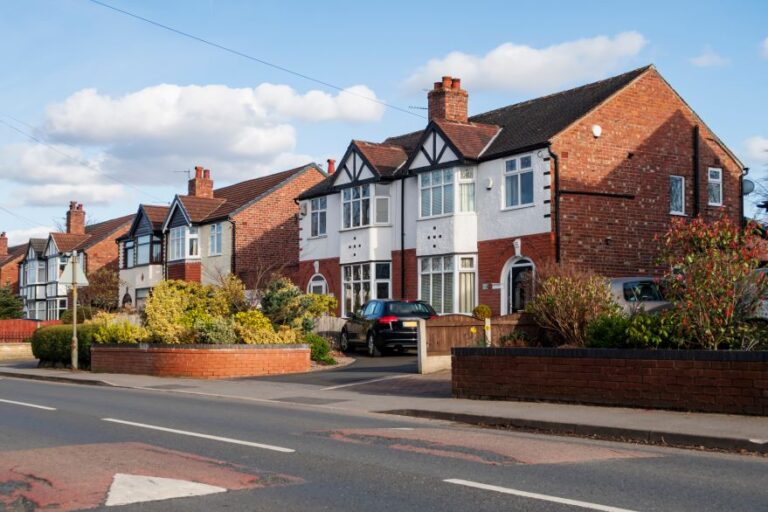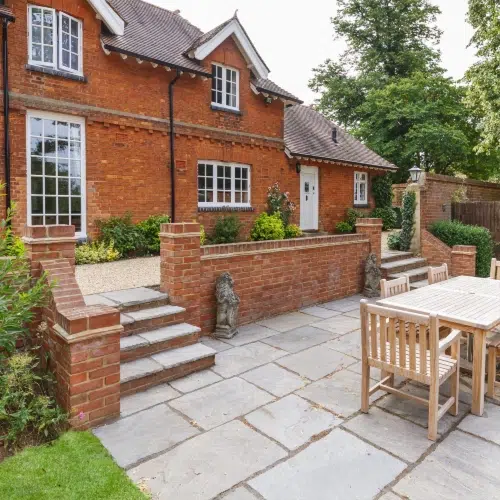According to BCH Ltd, a professional buildings insurance valuation service, 75% of the buildings that they survey are underinsured. Similarly, RebuildCostAssessment.com advise that two thirds of properties are underinsured and are normally covered for less than 70% of their correct rebuild cost.
But why is this important?
Having the correct buildings sums insured for your home is important for three reasons:
- There might be a shortfall in the event of a claim because the insurer may apply the average clause. This means that if your property is insured for £700,000, but the actual cost to rebuild it is £1,000,000 then the insurer will reduce the claim by 30%. In the event of a major incident you may face a shortfall of £300,000 but, importantly, this clause also applies to any claim. So, if you make a £10,000 claim you may only receive £7,000 – even though the claim amount is well below your sums insured.
- Your claim might be disputed. If the insurer deems that you have deliberately or ‘recklessly’ underinsured then they may refuse to pay a claim completely. There are ways to manage your home insurance premium safely, without underinsuring.
- There may be a delay in rebuilding your property. It’s a homeowner’s responsibility to set the buildings sums insured – and it’s important to remember that there is no direct correlation between the market value of your home and the rebuild costs.
How the economic climate can impact your buildings sums insured
Rebuild costs have increased because of higher demand and lower supply caused by Covid-19 and Brexit. And the ongoing conflict in Ukraine has resulted in a shortage of raw materials such as timber. Furthermore, energy costs associated with producing building materials, including bricks and plasterboard, have also risen significantly.
Since Brexit, Sterling has dropped against the Euro. So, for example, the cost of importing materials from European countries has risen. All this means that the cost of rebuilding your home is increasing.
Although insurers index-link sums insured to keep up with higher costs, according to the ABI it’s failing to keep up with the above inflation rises in the cost of many building materials. Therefore, if you haven’t already done so, we recommend that you review your existing buildings sums insured.
What factors do I need to consider when setting my buildings sums insured?
The buildings sums insured is the rebuild cost and it will vary according to the size, age, location, and type of property you have. Here’s what you need to consider:
1. Rebuilding your home
The buildings sums insured is essentially the amount it would cost to rebuild your home from scratch. This includes:
- All fixtures and fittings. Remember to include any lighting or sound equipment you may have installed and the cost of your fitted kitchen, fitted appliances, wardrobes and fitted bathroom.
- Outside walls, terraces, walled gardens, patios and driveways.
- Any outbuildings – sun houses, garden offices, tennis courts, guest annexes.
- Environmental upgrades you may have made – solar panels, triple glazing, heat pumps.
- Underground drains or equipment connected to your oil tank if you have oil-fired central heating.
- The cost of materials, labour and professional fees
As we’ve said already, rebuild costs have increased. Plus, there’s the added challenge of inflationary pressure!
As well as materials, you also need to factor in professional fees, as not considering architectural or survey costs could leave you with a shortfall.
2. Location
Where your home is located may influence the rebuild cost. For example:
- Delivery costs in an isolated or rural area may be higher.
- Delivery costs and fees may be higher if you live in Central London or a ULEZ zone.
- If you live in an urban area you may need protected scaffolding during the rebuild.
- You may need to rent space for parking or a site office during the rebuild.
These are all costs you should factor in when setting your buildings sums insured.
3. The type of property you live in
If your home is of an unusual construction, then the rebuild cost may be higher. For example, gatehouses tend to be small but complex constructions. If your property is listed, then consideration must be given to the increased length of time taken at the planning stage to ensure the repair/rebuild meets with planning authority requirements.
This can have a significant impact on the overall cost to rebuild the home. The cost of new systems, such as wiring and plumbing, could also be significant.
4. Recent upgrades or renovations
Factor in any recent renovations. Have you installed underfloor heating, turned your spare room into a studio, or even invested in a wine cellar or bar? Perhaps you have ungraded your kitchen or bathroom? Failure to increase the building sum insured upon completion of works could result in underinsurance.
Can anyone help me when it comes to setting my buildings sums insured?
If you are in any doubt that your buildings sums insured is too low, we recommend you obtain a professional valuation of your property. Companies such as BCH or RCA can survey your property and advise you of the rebuild cost. It’s important to note that this wouldn’t be a valuation but a reinstatement cost.
Desktop surveys* are also available and the rebuild cost would be based on satellite imagery and mapping software alongside the surveying companies own data.
*A desktop survey may not be suitable for all properties. Larger and more complex properties may require a visit.
How a broker can help
It’s often only when making a claim that many people discover they’re underinsured – and that’s never a pleasant surprise. But with so many properties falling short of the right cover, it’s worth asking: how confident are you that your home is properly protected?
That’s why an insurance broker, such as Howden, can be so useful. Essentially, a broker can do the heavy lifting for you, such as submitting requests and paperwork on your behalf, using our relationships with BCH and RCA and insurers to help you find cover that properly protects you. We also talk our clients through various cover options to ensure you are correctly covered, with your budget in mind, to give you peace of mind.
Visit your local Howden Insurance branch or get in touch online for tailored advice from real people who understand the value of your home, inside and out.
Sources: ABI, HomeBuilding.co.uk
You could also read:
- Hidden risks in your garden
- Can you be insured for ‘travel anxiety’?
- Home improvements that don’t need planning permission
- Are you a target for ‘crash for cash’ scammers?
- Cyberattacks: how to protect your data
This is a marketing blog by Howden Insurance.



